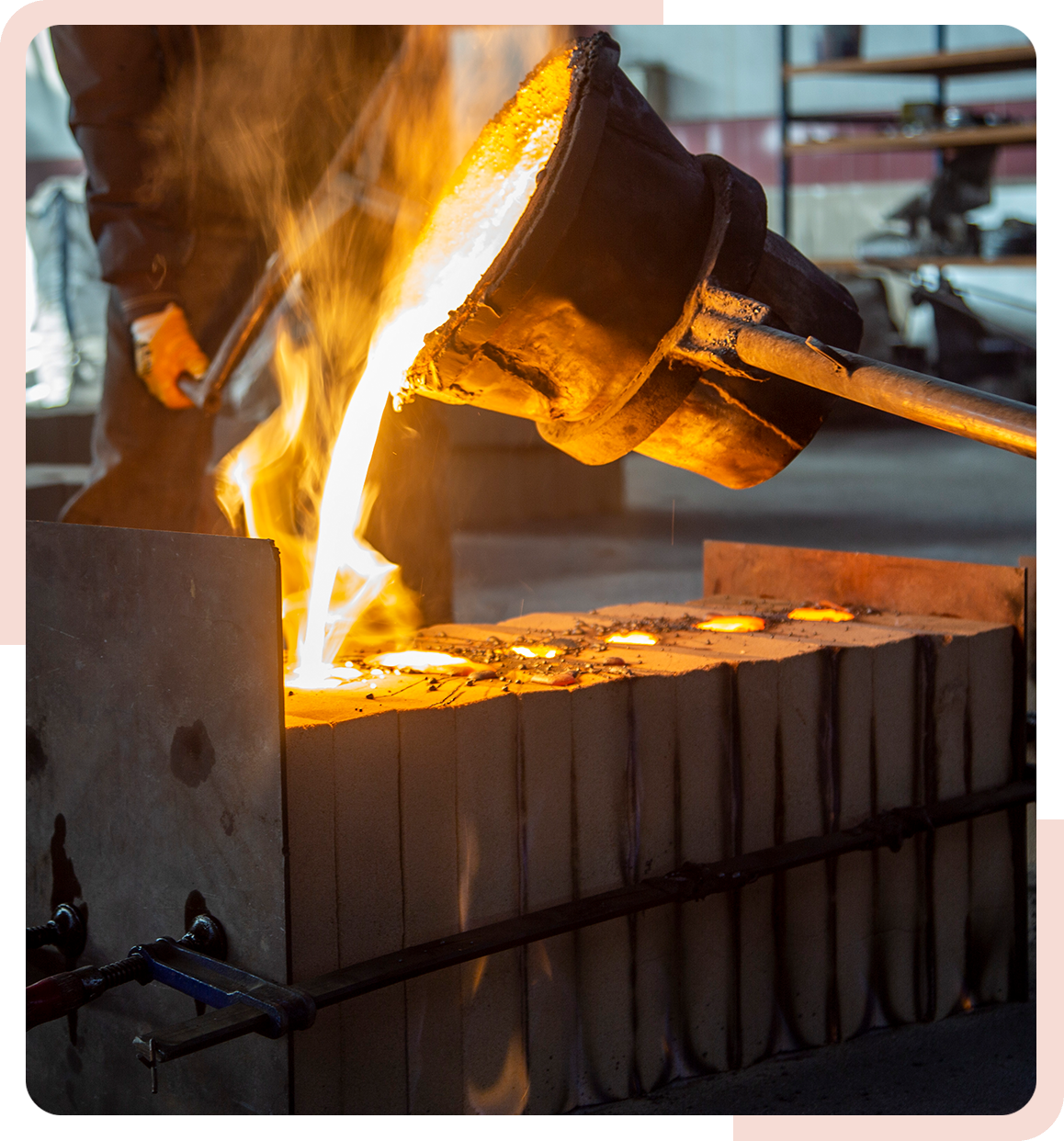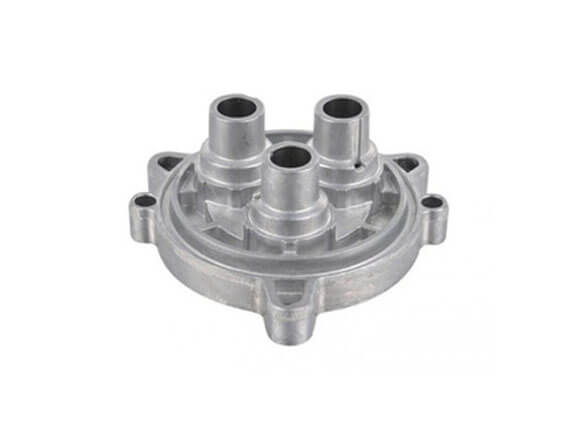The Future of Aluminum Foundries: Innovations and patterns Forming the Industry
The aluminum shop sector is undergoing significant makeover. Secret fads highlight the value of sustainability and effectiveness. Innovations in smart manufacturing and automation are becoming prevalent. Foundries are significantly concentrated on using recycled products. This shift questions about future practices and modern technologies. How will these changes influence production techniques and market characteristics? The solutions might redefine the sector landscape in unexpected ways.
Innovations in Smart Production Technologies
As the aluminum factory market develops, innovations in clever production technologies are becoming progressively necessary for boosting efficiency and efficiency. The combination of automation, fabricated intelligence, and the Web of Things (IoT) is transforming typical shop procedures. These technologies allow real-time tracking of procedures, enabling prompt adjustments that optimize outcome and decrease waste.
In addition, artificial intelligence formulas analyze manufacturing information to determine patterns and forecast maintenance requirements, minimizing downtime. Robotics are increasingly used for repetitive tasks, freeing competent employees to concentrate on more complex obstacles. Additionally, electronic doubles-- virtual versions of physical procedures-- assist in simulations that can boost layout and functional techniques.
The fostering of these wise production technologies is driving competitive advantages in the light weight aluminum factory field. By simplifying process and enhancing decision-making capabilities, factories can satisfy growing market needs while preserving premium requirements. The future of aluminum factories is without a doubt connected to these technological developments.
Accepting Eco-Friendly Products and Processes
The aluminum factory sector is significantly concentrating on green products and procedures to improve sustainability. This change includes the adoption of lasting product sourcing, energy-efficient production techniques, and effective recycling and waste administration methods. By integrating these practices, shops aim to reduce their ecological impact while maintaining competition in the marketplace.
Lasting Product Sourcing
Just how can aluminum shops boost their sustainability initiatives? Lasting material sourcing has actually arised as a vital approach in attaining this objective. By prioritizing recycled aluminum, foundries can greatly decrease their ecological impact, as recycled materials call for less energy and less resources contrasted to key aluminum production. Furthermore, sourcing products from accredited suppliers that stick to green practices advertises responsible mining and reduces eco-friendly effect. Shops are additionally discovering different products, such as biopolymers and green finishings, to match traditional light weight aluminum procedures. Working together with stakeholders, including vendors and ecological companies, fosters technology in sourcing strategies. Inevitably, welcoming sustainable product sourcing not just straightens with global sustainability goals yet likewise positions light weight aluminum shops as leaders in eco liable production.
Energy-Efficient Manufacturing Techniques
Aluminum factories are significantly adopting energy-efficient production techniques to complement their lasting material sourcing initiatives. These methods focus on lessening power intake throughout the production procedure. Advanced technologies, such as induction melting and enhanced casting processes, are being executed to lower the general carbon footprint. Furthermore, automation and wise production systems improve functional efficiency, enabling much better energy administration. Shops are additionally discovering the assimilation of renewable energy resources, such as solar and wind, to power their operations. By prioritizing power performance, aluminum shops not only lower manufacturing expenses but likewise align themselves with worldwide sustainability goals, guaranteeing a more environmentally responsible approach to aluminum manufacturing while satisfying the increasing need for environment-friendly methods in the market.
Recycling and Waste Monitoring
Accepting environmentally friendly materials and procedures, light weight aluminum foundries are prioritizing recycling and waste administration techniques to improve sustainability in their operations. By integrating closed-loop systems, these centers are decreasing waste and maximizing resource effectiveness. Scrap light weight aluminum, an easily offered material, is being recycled on-site, considerably lowering the need for virgin materials and lowering energy intake. Developments in arranging and refining innovations further assist in the recycling of light weight aluminum, making certain that even polluted materials can be repurposed efficiently. Furthermore, factories are taking on sustainable practices such as lowering unsafe waste and advertising making use of eco-friendly materials for product packaging. This commitment to recycling not just lowers ecological influence yet also boosts the financial practicality of aluminum shops in an open market.
The Role of Automation and Robotics
Automation and robotics are significantly transforming the aluminum shop industry, significantly boosting production performance. By incorporating innovative technologies, foundries can reduce labor costs while all at once improving safety and security criteria for their workforce. This change not only streamlines operations however also places the sector for sustainable growth in a competitive market.
Enhanced Production Performance
Revolutionizing manufacturing procedures, the combination of innovative robotics and automation innovations has actually ended up being a keystone for light weight aluminum factories looking for enhanced efficiency. These advancements streamline workflows, decrease cycle times, and enhance item quality by lessening human error. Automated systems can keep track of production lines in real-time, enabling prompt modifications that maximize result. Furthermore, robotics assist in the handling of hazardous materials, making certain much safer workplace while boosting throughput. Predictive upkeep innovations additionally add to efficiency by expecting equipment failures, thereby lowering downtime. Therefore, light weight aluminum factories can achieve higher uniformity in their items while responding extra swiftly to market demands. This accept of automation is establishing a brand-new requirement for efficiency and operational quality within the sector.

Lowering Labor Expenses
The shift in the direction of progressed robotics and automation in aluminum foundries not only improves production effectiveness but also plays a substantial role in minimizing labor prices. By incorporating automated systems, foundries can reduce the reliance on manual work, which usually includes high earnings and training costs. Robotics improve repeated jobs such as putting, molding, and completing, permitting a greater output with less workers. This technical modification not only reduces labor-related expenses however also improves uniformity and high quality in manufacturing. Automation can run around the clock, taking full advantage of functional hours without the linked prices of overtime or change differentials. Because of this, aluminum factories can attain considerable financial savings while preserving competitive pricing in a developing market landscape.
Improving Security Criteria
While conventional aluminum shop procedures commonly reveal employees to harmful settings, the combination of robotics and automation significantly improves security criteria within the market. Automated systems can carry out high-risk tasks, such as liquified steel handling and hefty lifting, decreasing human exposure to harmful conditions. Furthermore, robotics can run in extreme temperatures and toxic ambiences, efficiently reducing the risk of injury. Advanced monitoring technologies and expert system assurance real-time safety and security assessments, permitting for immediate feedbacks to prospective hazards. Furthermore, automation improves operations, reducing the probability of crashes brought on by human error. Because of this, the adoption of these innovations not only boosts safety yet additionally promotes a much more productive and efficient workplace in light weight aluminum shops.
Enhancing Power Effectiveness in Manufacturing
As aluminum shops seek to preserve competitiveness in a progressing market, improving power performance in manufacturing continue reading this has actually become an important emphasis. By taking on sophisticated innovations such as high-efficiency melting heating systems and automated temperature level controls, foundries can notably reduce energy consumption. Applying real-time surveillance systems enables precise tracking of power usage throughout the manufacturing process, allowing quick modifications to optimize effectiveness.
Furthermore, moving to different energy resources, consisting of sustainable alternatives, can further reduce the carbon impact. The integration of energy recuperation systems, which recover waste heat for reuse, is becoming increasingly common. Educating personnel in energy management techniques assures that every person entailed in the production procedure is mindful of energy usage.
These efforts not just reduced functional expenses but also straighten with international sustainability objectives, positioning light weight aluminum shops as accountable players in the sector while improving their general competitiveness. - Aluminum Casting Company
Advancements in Recycling Light Weight Aluminum
Technologies in recycling aluminum have acquired momentum along with efforts to improve power efficiency in production. The aluminum industry has actually accepted advanced technologies that improve the reusing procedure, minimizing energy intake and ecological effect. Methods such as hydrometallurgy and brand-new sorting modern technologies improve the removal of light weight aluminum from scrap, boosting return rates and making sure better recycled product.
In addition, the development of closed-loop recycling systems permits factories to reuse aluminum without substantial deterioration in top quality, making the process much more sustainable. Technologies in logistics and collection, including boosted radar and automated sorting, have likewise played a vital role in boosting the effectiveness of light weight aluminum recovery. These advancements not only add to a round economic situation however also aid mitigate the carbon footprint related to light weight aluminum production. As the demand for lasting methods grows, these advancements position the aluminum shop field as a leader in responsible source management.
Reacting To Market Needs and Consumer Trends
Adaptability has come to be a keystone for aluminum check this site out shops reacting to advancing market needs and customer patterns. As markets increasingly focus on sustainability, aluminum shops are changing in the direction of environmentally friendly methods, consisting of enhanced reusing procedures and lowered carbon footprints. This change straightens with consumer choices for ecologically liable items, driving factories to introduce their offerings.
In addition, the increase of light-weight products in auto and aerospace sectors requires developments in aluminum alloys and casting strategies. Factories are investing in r & d to generate high-strength, light-weight elements that meet rigid efficiency standards.
Modification has actually acquired grip, with consumers looking for customized solutions. Light weight aluminum shops are leveraging innovative manufacturing innovations, such as 3D printing, to accommodate certain client needs efficiently. This responsiveness not only satisfies customer demands yet likewise placements aluminum factories competitively in a vibrant market landscape, ensuring their importance in an ever-changing industrial environment.

Frequently Asked Questions
How Do Light Weight Aluminum Foundries Impact Resident Economies?
Light weight aluminum shops considerably impact local economic climates by producing jobs, boosting demand for local distributors, and adding to neighborhood development. Their procedures frequently bring about increased tax profits, which can money necessary public solutions and framework improvements.
What Are the Safety Rules for Light Weight Aluminum Shop Employees?
Safety and security guidelines for aluminum shop workers include necessary individual safety equipment, proper air flow systems, normal training on unsafe materials, and adherence to guidelines established by work-related health and wellness administrations to lessen dangers and guarantee employee safety and security. - Aluminum Foundry
Exactly How Does Light Weight Aluminum Recycling Affect Global Supply Chains?
Aluminum recycling considerably decreases need for resources, improves source efficiency, and maintains costs. This shift effects global supply chains by promoting a round economic situation, advertising sustainability, and making sure an extra durable industry in fluctuating markets.
What Job Opportunities Exist in the Light Weight Aluminum Factory Market?
Numerous occupation possibilities exist in the light weight aluminum shop sector, consisting of functions in design, high quality control, manufacturing administration, and research and growth. Competent labor placements such as mold makers and device drivers are also in demand.
Just How Do International Trade Policies Impact Aluminum Foundries?
International profession plans substantially influence light weight aluminum shops by impacting import tolls, supply chain characteristics, and market access. These aspects can affect operational expenses, competition, and total productivity within the global light weight aluminum production landscape.
By focusing on recycled aluminum, shops can considerably decrease their ecological impact, as recycled products require less power and less resources compared to main light weight aluminum manufacturing. Aluminum foundries are increasingly taking on energy-efficient manufacturing techniques to match their sustainable material sourcing efforts. Automation and robotics are progressively changing the light weight aluminum factory industry, significantly improving production performance. The shift towards advanced robotics and automation in aluminum factories not only improves manufacturing performance but also plays click this link a considerable function in reducing labor costs. As aluminum foundries look for to maintain competition in a progressing market, enhancing power efficiency in manufacturing has actually arised as a crucial focus.